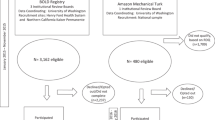Abstract
Crowdsourcing (CS) is the outsourcing of a problem or task to a crowd. Although patient-centered care (PCC) may aim to be tailored to an individual’s needs, the uses of CS for generating ideas, identifying values, solving problems, facilitating research, and educating an audience represent powerful roles that can shape both allocation of shared resources and delivery of personalized care and treatment. CS can often be conducted quickly and at relatively low cost. Pitfalls include bias, risks of research ethics, inadequate quality of data, inadequate metrics, and observer-expectancy effect. Health professionals and consumers in the US should increase their attention to CS for the benefit of PCC. Patients’ participation in CS to shape health policy and decisions is one way to pursue PCC itself and may help to improve clinical outcomes through a better understanding of patients’ perspectives. CS should especially be used to traverse the quality-cost curve, or decrease costs while preserving or improving quality of care.
Similar content being viewed by others
References
National Center for Biotechnology Information. Crowdsourcing. http://www.ncbi.nlm.nih.gov/mesh/?term=crowdsourcing. Accessed 5 Nov 2013.
Johnston SC, Hauser SL. Crowdsourcing scientific innovation. Ann Neurol. 2009;65(6):A7–8. doi:10.1002/ana.21791.
Ranard BL, Ha YP, Meisel ZF, et al. Crowdsourcing: harnessing the masses to advance health and medicine, a systematic review. J Gen Intern Med. 2013;11:11.
Institute of Medicine. Crossing the quality chasm: a new health system for the 21st century. Washington, DC: National Academy Press; 2001.
Parvanta C, Roth Y, Keller H. Crowdsourcing 101: a few basics to make you the leader of the pack. Health Promot Pract. 2013;14(2):163–7.
Cohn J. Citizen science: can volunteers do real research? BioScience. 2008;58(3):192–7.
Hussey PS, Anderson GF, Osborn R, et al. How does the quality of care compare in five countries? Health Aff (Millwood). 2004;23(3):89–99.
Davis K. Slowing the growth of health care costs: learning from international experience. N Engl J Med. 2008;359(17):1751–5.
Anderson GF, Hurst J, Hussey PS, et al. Health spending and outcomes: trends in OECD countries, 1960–1998. Health Aff (Millwood). 2000;19(3):150–7.
Stewart M. Towards a global definition of patient centred care. BMJ. 2001;322(7284):444–5.
Newbold KB, Campos S. Media and social media in public health messages: a systematic review. Hamilton: McMaster Institute of Environment & Health; 2011. http://www.mcmaster.ca/mieh/documents/publications/Social%20Media%20Report.pdf.
International Alliance of Patients’ Organizations. Declaration on patient-centred healthcare. http://www.patientsorganizations.org/showarticle.pl?id=712&n=312. Accessed 5 Nov 2013.
Merchant RM, Asch DA, Hershey JC, et al. A crowdsourcing innovation challenge to locate and map automated external defibrillators. Circ Cardiovasc Qual Outcomes. 2013;6(2):229–36.
Luengo-Oroz MA, Arranz A, Frean J. Crowdsourcing malaria parasite quantification: an online game for analyzing images of infected thick blood smears. J Med Internet Res. 2012;14(6):e167. doi:10.2196/jmir.2338.
Graber MA, Graber A. Internet-based crowdsourcing and research ethics: the case for IRB review. J Med Ethics. 2013;39(2):115–8.
Good BM, Su AI. Crowdsourcing for bioinformatics. Bioinformatics. 2013;29(16):1925–33.
OpenMRS. OpenMRS. http://openmrs.org/. Accessed 29 Jan 2014.
Norman TC, Bountra C, Edwards AM, et al. Leveraging crowdsourcing to facilitate the discovery of new medicines. Sci Transl Med. 2011;3(88):88mr1.
Bow HC, Dattilo JR, Jonas AM, et al. A crowdsourcing model for creating preclinical medical education study tools. Acad Med. 2013;88(6):766–70. doi:10.1097/ACM.0b013e31828f86ef.
McCartney P. Crowdsourcing in healthcare. MCN Am J Matern Child Nurs. 2013;38(6):392.
Behrend TS, Sharek DJ, Meade AW, et al. The viability of crowdsourcing for survey research. Behav Res Methods. 2011;43(3):800–13.
Turner AM, Kirchhoff K, Capurro D. Using crowdsourcing technology for testing multilingual public health promotion materials. J Med Internet Res. 2012;14(3):e79.
Armstrong AW, Harskamp CT, Cheeney S, et al. Crowdsourcing in eczema research: a novel method of data collection. J Drugs Dermatol. 2012;11(10):1153–5.
Dasgupta N, Freifeld C, Brownstein JS, et al. Crowdsourcing black market prices for prescription opioids. J Med Internet Res. 2013;15(8):e178.
Cameron P, Corne DW, Mason CE, et al. Crowdfunding genomics and bioinformatics. Genome Biol. 2013;14(9):134.
Acknowledgments
The research reported here was supported by the Regenstrief Institute, Inc., the Indiana University School of Medicine, and the Department of Veterans Affairs, Veterans Health Administration, Health Services Research and Development Service CIN 13-416. Dr. Weiner is Chief of Health Services Research and Development at the Richard L. Roudebush Veterans Affairs Medical Center in Indianapolis, IN, USA. The views expressed in this article are those of the authors and do not necessarily represent the views of the Department of Veterans Affairs.
Author information
Authors and Affiliations
Corresponding author
Rights and permissions
About this article
Cite this article
Weiner, M. The Potential of Crowdsourcing to Improve Patient-Centered Care. Patient 7, 123–127 (2014). https://doi.org/10.1007/s40271-014-0051-6
Published:
Issue Date:
DOI: https://doi.org/10.1007/s40271-014-0051-6




